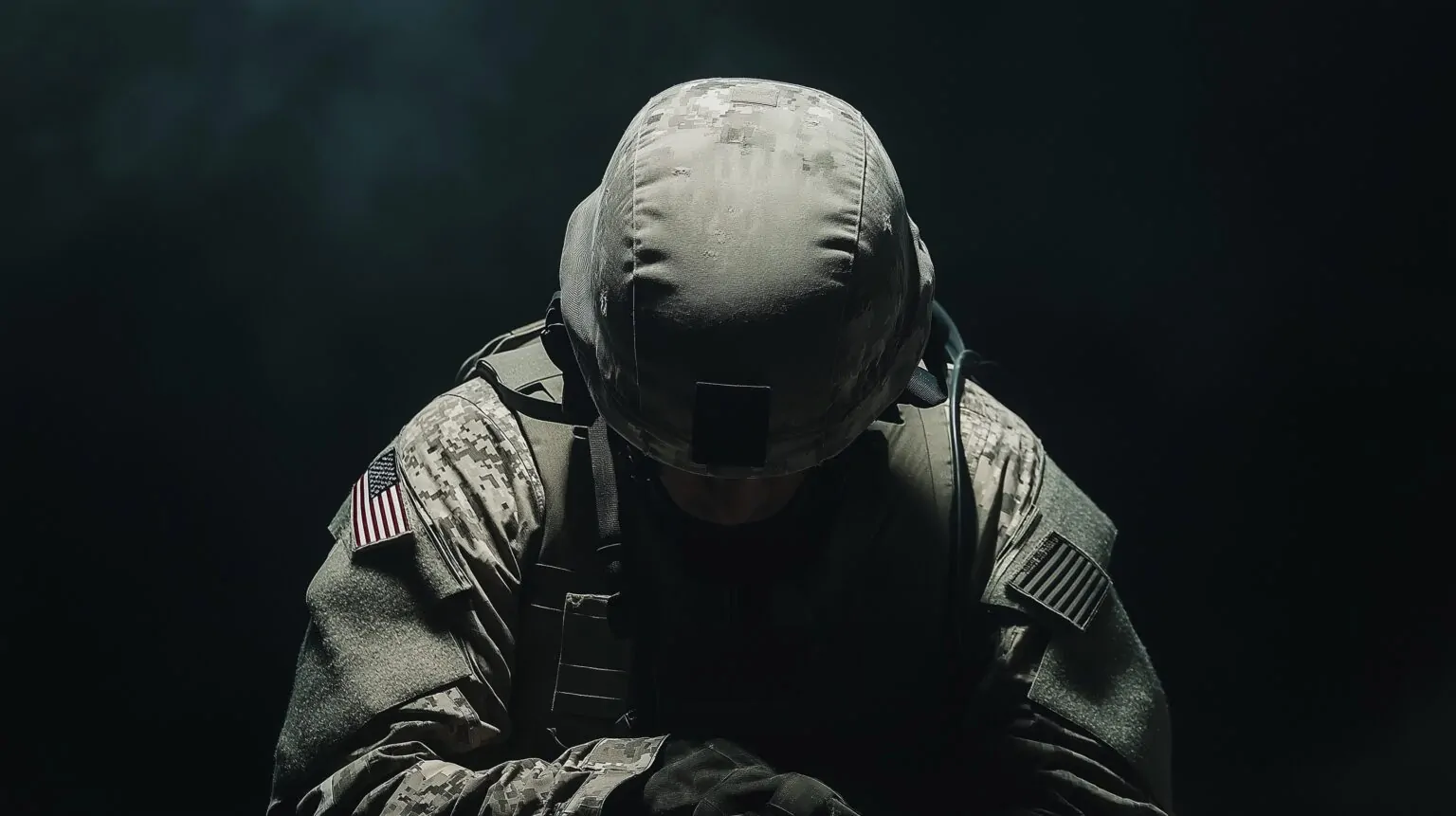Military mental health waivers allow individuals with certain medical histories to pursue enlistment despite conditions that might otherwise disqualify them.
These waivers play an important role in expanding recruitment opportunities while ensuring that those who join meet necessary health standards.
The process is often misunderstood, with many assuming that any history of mental health treatment results in automatic rejection.
In reality, the waiver system provides a pathway for individuals to demonstrate their fitness for service.
Military Medical Waiver Policies
The military enforces strict medical standards for enlistment to ensure that all service members can handle the physical and mental demands of duty.
However, waivers exist to provide flexibility for those who may have a history of medical conditions but are otherwise capable of serving effectively.
Mental health conditions are often assumed to be automatic disqualifiers, but the process is more nuanced. Each case is reviewed individually, allowing for the possibility of enlistment if the applicant can demonstrate stability and functional ability.

Factors That Influence Waiver Eligibility
Several factors determine whether a waiver may be granted, including the nature of the mental health condition and the applicant’s current state.
- Obsessive-Compulsive Disorder (OCD) – Candidates must show they can manage symptoms without regular intervention.
- Depression and Anxiety – A history of mild or well-managed cases may not lead to automatic disqualification.
- Attention-Deficit Hyperactivity Disorder (ADHD) – Individuals who have been off medication for a certain period and demonstrate stable academic or work performance may qualify.
- Autism Spectrum Disorder (ASD) – Some cases may receive consideration if symptoms are mild and do not interfere with military duties.
Beyond the condition itself, additional factors influence waiver approval:
- Symptom History – The severity, frequency, and duration of symptoms play a key role.
- Medication Use – Candidates who have been medication-free for a specified period may have a stronger case for approval.
- Functional Ability – Evidence of independent functioning in work, education, or daily life improves chances of obtaining a waiver.
Reevaluating Disqualifications
Not all disqualifications are final. Some applicants who are initially denied may later qualify for a waiver if their condition changes.
- A candidate who was previously disqualified due to medication use may become eligible after demonstrating stability without prescriptions.
- Individuals with a history of mild depression or anxiety may be reconsidered if they have shown consistent emotional stability over time.
- Waiver approval can also vary by military branch, meaning a rejection from one branch does not always mean disqualification across all services.
The waiver process aims to balance the military’s need for readiness while allowing qualified individuals the opportunity to serve.
Those who believe they may be eligible should work closely with recruiters to present the strongest case possible.
The Waiver Application Process
All branches of the military have medical requirements to ensure that service members are physically and mentally fit to perform their duties, especially during intense training and deployments. Being dependent on medication can be a concern because it may affect a person’s…
— National Guard (@NationalGuard) February 5, 2025
The process of obtaining a military mental health waiver involves several steps, each requiring attention to detail and proper documentation.
Military enlistment standards are strict, but waivers provide an opportunity for those who can demonstrate medical stability.
Initial Medical Screening at MEPS
Every applicant must pass a medical evaluation at a Military Entrance Processing Station (MEPS).
Screening assesses overall health and determines if a recruit meets the required standards.
- MEPS physicians review medical histories, including past mental health diagnoses and treatments.
- Any history of conditions such as depression, anxiety, ADHD, or other disorders may trigger a need for further evaluation.
- If flagged, the applicant is required to submit additional documentation proving stability and functional ability.
Required Documentation
To support a waiver request, applicants must gather and submit comprehensive medical records.
- Detailed reports from physicians outlining diagnosis history and current status.
- Evidence of stability, such as a physician’s statement confirming no recent symptoms or medication dependency.
- Personal statements explaining past mental health challenges and current ability to function without restrictions.
- Psychiatric evaluations or additional tests if required by the reviewing authority.
Submission and Branch-Specific Approval Differences
Once all necessary documents are collected, they are sent to the waiver authority of the applicant’s chosen branch.
- Some branches have stricter standards than others when approving waivers.
- An applicant denied by one branch may still qualify in another.
- Review times can vary based on military needs, workload, and specific policies within each branch.
Factors That Influence Waiver Decisions
Approval is not solely based on medical records.
- Recruiter involvement: Some recruiters are more knowledgeable about waivers and can assist in strengthening an application.
- Geographic considerations: Certain regions process waivers faster, depending on the number of applications and available resources.
- Military demand: If enlistment numbers are low, waivers may be approved at higher rates to meet recruitment goals.
Options After a Waiver Denial
Rejection does not necessarily mean the end of the process.
- Reapplying after additional time has passed, especially if there has been an improvement in medical status.
- Seeking enlistment in another branch, as different branches have varying approval rates.
- Working with a recruiter to improve documentation and provide stronger medical evidence.
Military mental health waivers require persistence and preparation. Those who carefully follow the process and provide strong documentation may improve their chances of approval.
The Role of Policy Changes and Congressional Oversight

Recruitment challenges have led to policy adjustments regarding medical waivers. With fewer people meeting enlistment requirements, the military has recognized the need to reassess medical disqualifications.
Mental health history has become a significant factor in recruitment shortfalls, pushing policymakers to reconsider certain restrictions.
They have begun to evaluate how certain disqualifications may be adjusted to ensure capable individuals are not unnecessarily excluded.
Efforts to Standardize and Improve Waiver Processes
Now let us take a look at the efforts to standardize and improve waiver processes.
| Policy Initiative | Description | Impact on Recruitment |
|---|---|---|
| Reevaluation of Disqualifying Conditions | Medical disqualifications reviewed with a focus on stability. | Allows more applicants with stable mental health histories to qualify. |
| Pilot Programs for Consistency | Standardizes waiver approvals across branches. | Creates a more predictable and fair waiver approval process. |
| Increased Transparency in Medical Disqualifications | Pushes for clearer reasons behind waiver denials. | Helps applicants understand reasons for waiver denials and next steps. |
| Congressional Oversight and Its Influence on Waiver Policies | Congress shapes policies for military eligibility. | Ensures military readiness while adapting to recruitment challenges. |
| Recruitment Goals and Waiver Adjustments | Congress reassesses disqualification policies. | Expands eligibility for those previously disqualified. |
| Mandates for Review and Reform | Calls for waiver reviews to align with modern standards. | Modernizes disqualification standards for fairer evaluations. |
| Balancing Military Readiness and Mental Health Considerations | Balances recruitment needs with service readiness. | Maintains a balance between recruitment needs and service readiness. |
As recruitment struggles persist and mental health awareness grows, waiver policies will likely continue to shift.
The military is tasked with finding ways to remain open to capable individuals while maintaining the necessary standards for operational readiness.
Summary
Obtaining a military mental health waiver is challenging but not impossible. Many who assume they are automatically disqualified may find that their case is eligible for review.
With recruitment demands shifting and policies evolving, the process may continue to adapt.
Those determined to serve should explore all available options and work closely with recruiters to navigate the system effectively.
Related Posts:
- Common Boot Camp Myths - Why You Shouldn't Trust…
- Common Health Challenges Veterans Face and How to…
- Is Ibiza Safe in 2025? What You Need to Know Before You Go
- Can You Join the Army with Scoliosis? What You Need…
- Military Base Camp Rules and Regulations - What You…
- How Far is a Klick in The Military? What Do You Need to Know







